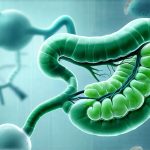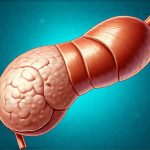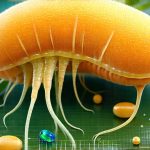The gallbladder, often underestimated in discussions about overall well-being, plays a crucial role in digestion and nutrient absorption. This small organ, nestled beneath the liver, stores bile – a fluid produced by the liver that aids in the breakdown and absorption of fats. When dietary fat enters the small intestine, the gallbladder contracts, releasing bile to emulsify those fats, making them easier for the body to process. Maintaining optimal gallbladder function is therefore vital not only for digestive comfort but also for overall health, impacting everything from energy levels to vitamin uptake. Many lifestyle factors influence gallbladder health, including diet, hydration, and stress management. Increasingly, individuals are exploring natural approaches like herbal teas as supportive elements within a holistic wellness strategy.
However, it’s incredibly important to approach gallbladder support with informed caution. The information presented here is for general knowledge and should not be interpreted as medical advice. Always consult with a qualified healthcare professional before making any significant changes to your diet or incorporating new supplements or herbal remedies, especially if you have pre-existing health conditions or are taking medication. Gallbladder issues can manifest in various ways, and accurate diagnosis from a doctor is paramount. Herbal teas can be a gentle addition to a healthy lifestyle, but they are not substitutes for proper medical care. Understanding the potential benefits and contraindications of each herb is key to safe and effective use.
The Role of Bile and Supporting Gallbladder Function
The core function of the gallbladder centers around bile production and storage. This yellowish-green fluid contains vital components needed to digest fats, including bile acids, cholesterol, and bilirubin. Without sufficient bile flow, individuals may experience difficulties digesting fatty foods, leading to symptoms like bloating, indigestion, abdominal pain, and even diarrhea. A sluggish or congested gallbladder can also contribute to the formation of gallstones – hard deposits that develop in the gallbladder and can cause significant discomfort. Supporting healthy bile flow is therefore a primary goal when considering natural approaches to gallbladder wellness.
Beyond simply aiding fat digestion, bile also plays a role in eliminating toxins from the body. The liver filters toxins, and some are excreted through bile into the intestines for elimination. A properly functioning gallbladder ensures this detoxification process operates smoothly. Herbal teas can potentially support both aspects of gallbladder function – promoting healthy bile flow and assisting with detoxification pathways. However, it is important to remember that a holistic approach encompassing diet, exercise, stress management, and adequate hydration is essential for long-term gallbladder health. Focusing solely on herbal remedies without addressing underlying lifestyle factors will likely yield limited results.
Herbal teas offer a gentle way to potentially support these functions due to the naturally occurring compounds found within plants. Many traditional systems of medicine, such as Traditional Chinese Medicine (TCM) and Ayurveda, have long utilized herbs for their digestive benefits, including those related to gallbladder function. These traditions highlight the interconnectedness between organs and emphasize restoring balance through natural remedies.
Herbs Known for Cholagogue & Choleretic Properties
The terms cholagogue and choleretic are crucial when discussing herbal support for the gallbladder. A cholagogue stimulates bile release from the gallbladder, while a choleretic promotes the production of bile by the liver. Many herbs exhibit both properties to varying degrees, making them valuable tools for supporting overall gallbladder function. Dandelion root (Taraxacum officinale) is perhaps one of the most well-known examples. It’s considered both a cholagogue and choleretic, gently encouraging bile flow and improving liver function. Artichoke leaf extract (Cynara scolymus) similarly supports bile production and aids in digestion.
Another herb frequently cited for gallbladder support is milk thistle (Silybum marianum). While primarily known for its liver-protective properties, milk thistle indirectly benefits the gallbladder by supporting overall liver health, which is essential for bile production. Turmeric (Curcuma longa), containing the active compound curcumin, possesses anti-inflammatory and antioxidant properties that may also contribute to healthy gallbladder function. It’s important to note that the bioavailability of curcumin can be enhanced when combined with black pepper, as piperine increases its absorption.
When incorporating these herbs into your routine via tea, consider the following:
1. Source high-quality organic herbs to minimize exposure to pesticides and other harmful chemicals.
2. Start with small amounts to assess your body’s tolerance and avoid any adverse reactions.
3. Be mindful of potential interactions with medications you may be taking – again, consulting a healthcare professional is essential.
Brewing & Consuming Gallbladder-Supporting Teas
The method of brewing can impact the potency and effectiveness of herbal teas. Generally, using filtered water heated to just below boiling point (around 200-212°F or 93-100°C) is ideal for most herbs. Avoid overboiling the water, as this can damage delicate compounds within the plants. For dandelion root tea, a longer steeping time of 10-15 minutes is often recommended to extract its beneficial properties fully. Artichoke leaf teas may require similar extended steeping times.
Regarding consumption, it’s best to drink these teas between meals rather than immediately before or after eating. This allows the herbs to work more effectively without interfering with digestion. Starting with one cup per day and gradually increasing if tolerated is a prudent approach. Pay attention to how your body responds and adjust accordingly. Some individuals may experience mild digestive upset initially, which usually subsides as the body adjusts. If symptoms persist or worsen, discontinue use and consult a healthcare professional.
Precautions & Contraindications
While herbal teas can be a gentle supportive measure, several precautions and contraindications should be considered. Individuals with existing gallbladder issues, such as gallstones or cholecystitis (inflammation of the gallbladder), should exercise extreme caution and absolutely consult their doctor before using any herbal remedies. Some herbs can stimulate gallbladder contractions, which could exacerbate symptoms or even lead to complications in individuals with gallstones.
Furthermore, those taking medications for liver or gallbladder conditions should be aware of potential interactions. Milk thistle, for example, may interact with certain drugs metabolized by the liver. Pregnant and breastfeeding women should also avoid using these herbs without medical guidance, as their safety during pregnancy and lactation hasn’t been fully established. Self-treating can be dangerous, especially when dealing with potentially sensitive organs like the gallbladder. This information is not intended to replace professional medical advice; it’s meant to encourage informed decision-making in collaboration with a qualified healthcare provider.


















